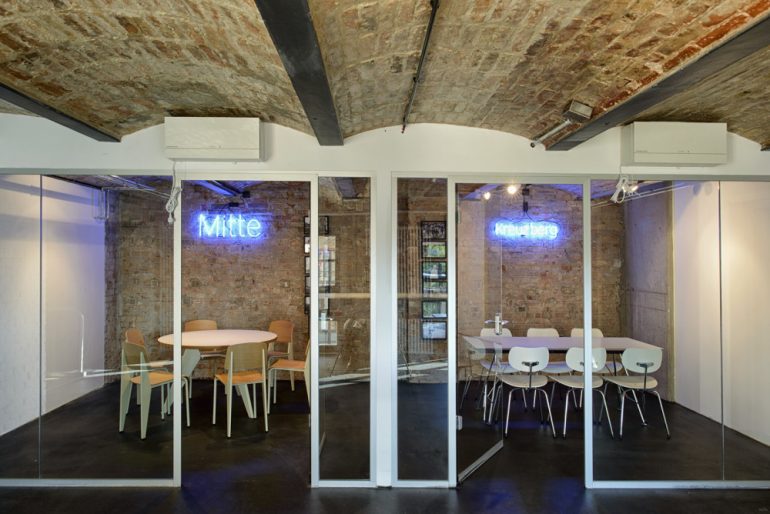David Noël about learnings he has gathered over six years at SoundCloud, helping a startup become the world’s largest audio and music platform on the web.
Tour manager, marketer, failed founder
A few weeks ago I opened Twitter and just started writing. It was an avalanche of thoughts, insights, and learnings I’ve gathered over six years at SoundCloud, helping a startup become the world’s largest audio and music platform on the web.
As a college dropout, lead singer in a hardcore band, A&R-turned tour manager, marketer, and failed founder, joining SoundCloud six years ago is up there in the highlights of my life. I’ve learned so much.
Over 20 tweets and 2 hours later, I found myself wanting to unpack some of those thoughts as they seemed to resonate with people. It’s hard to expand on ideas, to put them on paper and hope that others find them valuable. So today, I’m going to give it a shot.
Here are 5 nuggets that I want to share in more depth:
1. Company culture = a collective of people living shared values
Culture is the sum of your people living the company’s core values day in and day out, amplified by how those values are communicated internally and externally.
Defining our values started as an interesting challenge and turned into an amazing opportunity. Initially, we had some internal pushback: people feared we would simply pick a series of generic terms and become “too corporate”. It was important to us to educate our whole team about the purpose of values and to make it a collaborative and inclusive process. We learned a hard lesson once we defined our values: the importance of communicating and embedding them so that they become a framework for guiding decision-making and consultation as well as a neutral instrument to encourage behaviors that are on culture and on values. It’s when you truly live values — rather than just badge them — that you see an effect on your company culture.
When I ask people what they love about working at SoundCloud, ‘the people’ is usually the first response: for many of us, working at SoundCloud means working with the smartest, most passionate and nicest people we’ve ever worked with.
The second thing SoundClouders often say makes our company a special place to work is the impact that we’re making: creating, developing and supporting a great product for music & audio creators and listeners alike. We’re shaping the future of the music industry, of the product, and of a community of creators and listeners.
Our values is the third thing that people cite as what they love about working here: the openness, the opportunity for professional and personal growth, the chance to learn and to teach, be challenged and enjoy independence and autonomy.
These three things are all intrinsic to our culture. When they started out, our co-founders Alex and Eric believed that they were creating a great product. Then they realized that they were creating a great company that creates great products. Finally, they realized that it was most important of all to create a culture that enables the creation of a great company that creates great products.
Culture is stronger than perks. Culture is the manifestation of your values in a day-to-day. What kind of culture works for your company, and what are you doing to enable it?
2. When in doubt, over-communicate
When things move fast (and across time zones), clarity and repetition is key. Providing clarity is about creating context, to give background information, to set goals, and to connect to the bigger picture like your company’s mission and vision.
At the beginning of 2014, we started an effort to be much clearer about the focus areas of our company that we had previously been. We simplified our objectives into three priorities and tried to ensure that everybody in the company had the right context, and knowledge about what’s important to us. What happened is that people started repeating what they heard or read. A good test for me was when someone approached me and said: “We’ve heard this before, why are we repeating this…” — this made me know that it was working.
Communication at SoundCloud directly links to one of our core values: #open. We believe that being open creates better results, that information needs to flow like an undercurrent to enable velocity. Particularly as a company that operates across four offices and four different time zones, constant communication is paramount.
Communication at SoundCloud is also about creating context so that people across the organization can make the many decisions they need to make in order to build SoundCloud as a product and as a company.
Communication at SoundCloud is also about learning from our successes and failures: many teams do retrospectives to document and share what they have learned about the things that went well and didn’t go so well.
3. People function = more than HR
Of all the lessons in this post, this is perhaps the biggest one for me. My past work experience always made me regard the HR department (if you even have one!) as a supporting function that ensures that people get paid and where people go to complain. I was wrong. Seeing our People organization grow from nobody to a cross-functional global team consisting of business partners, recruiting partners, people services, office & facility management, and internal communications is the most refreshing learning I have experienced in my six years at SoundCloud.
We think of our company as a community, and we’ve built our People function with a team that helps nurture and foster that community. By putting people first and by positioning People team members as true business partners, driven by philosophies first and processes second, and by making organizational health one of the company’s top priorities, I think that we have built a global team that can do its best work and create a positive impact in the overall experience of employees across our global offices, from the moment they get in touch with us as applicants to the moment they move on to their next challenge.
4. Hire (and develop) builders, not runners
One of the traits that I appreciate most in the many people I am surrounded by every day is their initiative: they step in, take responsibility, and follow through. It’s so refreshing to see somebody take active ownership and deliver a remarkable result that the the company or our users can benefit from.
In a startup, when things don’t exist or processes aren’t in place, it’s most often because there hasn’t been time or a person to create a solution. Creating a collaborative environment in which people take and share responsibility and see an immediate impact is what makes working with a startup so attractive compared to other larger corporations.
It won’t be long until your company is in a place where people “run” departments. Until then, you’ll need the builders (and often re-builders) and the makers: people who frame problems fast, then work towards a solution.
The best applications I have seen are the ones from candidates who don’t focus on what they’ve done in the past, but where they map the requirements of the role they want with their approach how to solve them. This positions you as a “builder” rather than a “runner” who would deliver a long list of out-of-context accomplishments.
5. Building a company > doing a startup
Hacking a product in a weekend, joining a startup early in its lifetime — both are part of navigating the emotional rollercoaster of startup life. All of this sounds thrilling, and it certainly was for me. The real thrill, however, is watching the company mature and turn from a startup into a sustainable company, a company where people come and do the best work of their lives.
Startups are cool. Startups are disruptive. But with all the glorification of startups and 20-something founders, there is a point in the lifetime of a startup where the really exciting part is that you’re building a sustainable company. A company with responsibilities to its employees, customers, shareholders and partners.
It is fantastic that we live in a time when anyone in their bedroom can tap into the any open-source technologies to create mobile apps themselves, and with cheap access to infrastructure and the scope to develop product/market fit. To me, however, what’s even more exciting is that creating a healthy culture and building a sustainable company within it.
What do you think? What have you learned?
This article was first published on Medium.
More international voices on EDITION F:
Jennifer Dulski: „You need to be there for your team“. Read on
Ayelet: „Israel is the secon Silicon Valley.“ Read on


